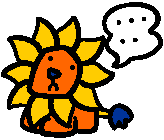
-------------------------------------------------------------------
#33 人間は進化の頂点に位置しています;従って人間には動物を好きな様に
利用する権利があるのではないでしょうか?
-------------------------------------------------------------------
これは科学的見地から道徳的結論を導きだそうとする数ある議論のう
ちのひとつです。この場合の科学はあやふやなものですし、そこから導
き出された道徳的帰結も疑わしいものです。まず最初にこの設問の科学
的側面について考えてみましょう。
この質問者は生物の進化が昆虫その他「下等な」種を底辺に、そして
(もちろん!)人間を頂点にした垂直的な適応のランキング(進化のは
しご)を作り上げたと考えています。こうした考え方はラマルク(*1)説
(用不用説)と呼ばれ、もともとは広義の進化論に含まれていましたが
現在では信用を失っています。
チャールズ・ダーウィンの自然淘汰説はラマルク説をくつがえしまし
た。ダーウィンが頭に描いた進化というものは垂直型の構造ではなく、
それぞれの種がそれぞれの生存環境に適応していく放射状のものです。
こうした見解をとると進化の頂点という概念は不明確なものとなりま
す。たしかに人間はそのニッチ(*2)にうまく適応しました(もちろん人
間が地球上の資源を持続不可能な形で浪費し続けていることを理由にこ
の考え方に異議を唱える人はたくさんいますが) しかし適応というこ
とであればバクテリアだってそのニッチにうまく適応しています。人間
の方がバクテリアよりも自らのニッチにうまく適応しているなどと本当
に言えるのでしょうか? もしそう言えたとしてもその事に何か意味が
あるのでしょうか? それぞれのニッチがこれほど異なったものなのに。
おそらくこの質問者が「頂点」という言葉を使っているのは人間が何
らかの特性において秀でており、この特性に従ってある種の物差しを作
ることができると考えているからでしょう。
たとえば知的能力を物差しとすれば人間はバクテリアよりもはるかに
まさっています。しかし別の特色を物差しにすればその結果はまるで違
うものになります。増殖能力という点においてはバクテリアが「頂点」
に立ちます。空を飛ぶ能力に着目すれば鳥が「頂点」に立ちます。
それではこの質問の道徳的帰結について考えてみましょう。進化の頂
点などといった怪しげな概念はわきに置いて、人間は知的能力という面
で頂点に立っている事を認めるとしましょう。それを認めたとしても単
に動物が人間より知能が劣っている事を理由に、人間には動物を好きな
ようにする権利があるという事になるのでしょうか?
もしそのとおりだと言うのならばそれは同時に私たち自身のパンドラ
の箱を開けてしまい、問題を生み出すこととなります。知能が優れた人
間は自分より知能が劣る人間から好きな様に搾取しても良いということ
になるのでしょうか?(アインシュタイン並の知能を持つ人間がいれば
私たちはみんなその人の奴隷とならなければいけないのでしょうか?)
別の資質をとってみるなら、たとえば体力的に勝る人間が自分よりも弱
い人間を虐待しても構わないのでしょうか?
よほど道徳に鈍感な人でないかぎり、そんな乱暴な原則を認めること
はできないでしょう。
ACEW
参照:
#34、
#37
訳注)*1.ラマルク(Jean Baptiste de Monet Lamarck 1744-1829)
フランスの博物学者。動物を脊椎の有無によって大別し、
無脊椎動物の分類体系を基礎づけた。ダーウィンに先立って
進化思想を述べた。
*2. ニッチ(niche)
ここでは種の保存に必要な要素を提供する生息場所のこと。

...............



-----------------------
#33 Humans are at the pinnacle of evolution; doesn't that give them
the right to use animals as they wish?
-----------------------
This is one of many arguments that attempt to draw ethical conclusions
from scientific observations. In this case, the science is shaky, and the
ethical conclusion is dubious. Let us first examine the science.
The questioner's view is that evolution has created a linear ranking of
general fitness, a ladder if you will, with insects and other "lower"
species at the bottom, and humans (of course!) at the top. This idea
originated as part of a wider, now discredited evolutionary system called
Lamarckism. Charles Darwin's discovery of natural selection overturned
this system. Darwin's picture, instead, is of a "radiating bush" of
species, with each evolving to adapt more closely to its environment,
along its own radius. Under this view, the idea of a pinnacle becomes
unclear: yes, humans have adapted well to their niche (though many would
dispute this, asserting the nonsustainable nature of our use of the
planet's resources), but so have bacteria adapted well to their niche. Can
we really say that humans are better adapted to their niche than bacteria,
and would it mean anything when the niches are so different?
Probably, what the questioner has in mind in using the word "pinnacle"
is that humans excel in some particular trait, and that a scale can be
created relative to this trait. For example, on a scale of mental
capability, humans stand well above bacteria. But a different choice of
traits can lead to very different results. Bacteria stand "at the
pinnacle" when one looks at reproductive fecundity. Birds stand "at
the pinnacle" when one looks at flight.
Now let us examine the ethics. Leaving aside the dubious idea of a
pinnacle of evolution, let us accept that humans are ranked at the top on
a scale of intelligence. Does this give us the right to do as we please
with animals, simply on account of their being less brainy? If we say yes,
we open a Pandora's box of problems for ourselves. Does this mean that
more intelligent humans can also exploit less intelligent humans as they
wish (shall we all be slaves to the Einsteins of the world)? Considering
a different trait, can the physically superior abuse the weak? Only a
morally callous person would agree with this general principle.
AECW
SEE ALSO: #34, #37




